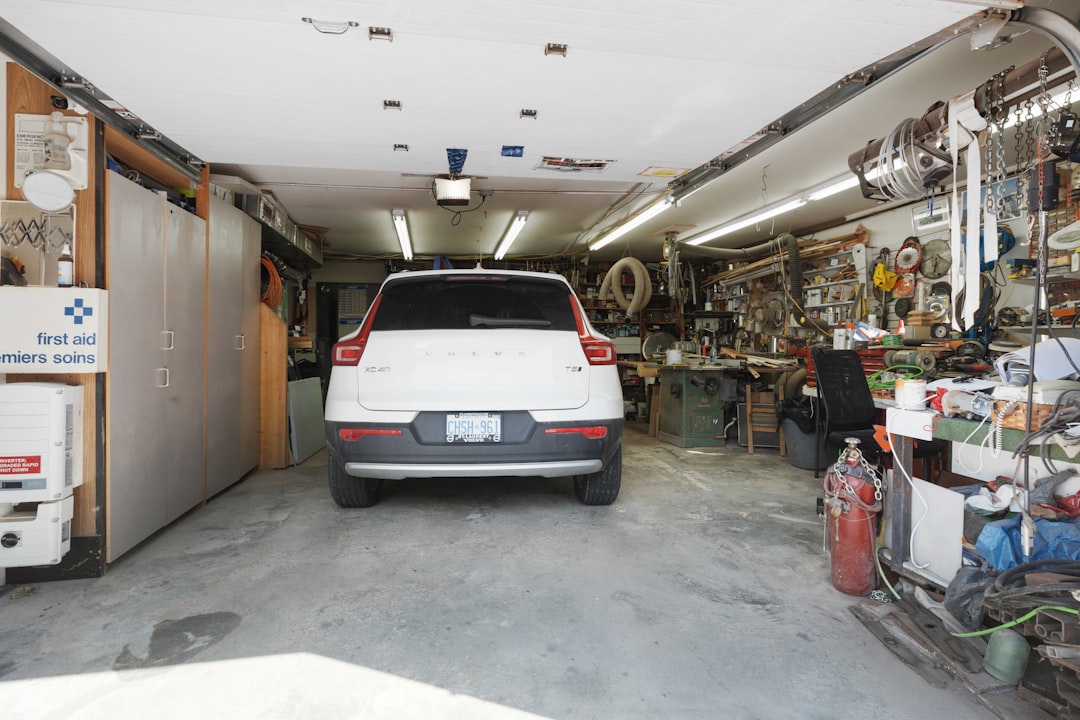Garage Door Panel Replacement Cost Guide
Price source: Costs shown are derived from our proprietary U.S. construction cost database (updated continuously from contractor/bid/pricing inputs and normalization rules).
Eva Steinmetzer-Shaw
Head of Marketing
Understanding Garage Door Panel Replacement Cost
Replacing a damaged garage door panel can range from $300–$900 for a single panel, including labor and standard paint matching. For double-wide insulated panels with designer windows, costs can reach $400–$1,200. These prices fluctuate with material costs, so staying updated is crucial for accurate budgeting.
Why Garage Door Panels Fail
- Impact from vehicles or equipment
- Moisture causing rot or rust
- UV degradation weakening materials
- Normal wear on older doors
Replacing a single panel can restore functionality and aesthetics without the cost of a full door replacement.
Key Cost Drivers
- Door Material: Steel is economical; wood is premium; composites offer mid-range options.
- Door Size: Single-car doors are less costly than double-car doors.
- Insulation Type: Non-insulated panels are cheaper; polyurethane offers the best insulation.
- Finish and Hardware: Custom finishes and decorative hardware increase costs.
- Labor Complexity: Older doors may require custom fabrication and additional labor.
Typical Price Range in Fort Worth
Average costs for single-panel replacements are between $300 and $900. Double-wide panels with added features can cost $400–$1,200. Prices are updated hourly to reflect current market conditions.
How Estimates Are Calculated
- Voice Capture: Convert spoken details into structured estimates.
- Real-Time Pricing: Sync with local suppliers for accurate material costs.
- Labor Mapping: Use local wage data for precise labor estimates.
- AI Risk Buffer: Include contingencies based on historical data.
- PDF & e-Signature: Receive detailed quotes ready for approval.
DIY vs. Professional Replacement
DIY Risks: Handling torsion springs is dangerous and can void warranties.
Professional Advantages: Access to wholesale pricing, insurance-compliant documentation, and a 5-year workmanship guarantee.
Savings Tips
- Replace weather seals during panel swaps.
- Schedule work in off-peak seasons.
- Bundle services for reduced labor costs.
Next Steps
For tailored estimates, start a session in the app or visit CountBricks.com. Get a transparent, detailed cost breakdown in minutes.
Case Study: Saving $550 on a Two-Panel Replacement
When a double-car steel door was damaged, a contractor used the CountBricks app to quickly generate a quote. By locking in a flash sale price, the total cost was $860, compared to competing bids of $1,225. The job was completed ahead of schedule, saving both time and money.
Cost Reduction Strategies
- Dynamic Bundling: Group small service calls to avoid repeat charges.
- Waste Tracking: Order only necessary materials to reduce waste.
- Regional Labor Benchmarks: Adjust rates to local medians to prevent inflated bids.
- Warranty Analytics: Choose components with lower failure rates for long-term savings.
Experience the Difference
CountBricks offers an integrated platform for managing residential construction projects efficiently. From initial estimates to final invoices, streamline your process with our comprehensive tools. Start your estimate in the app or request a demo at CountBricks.com.

